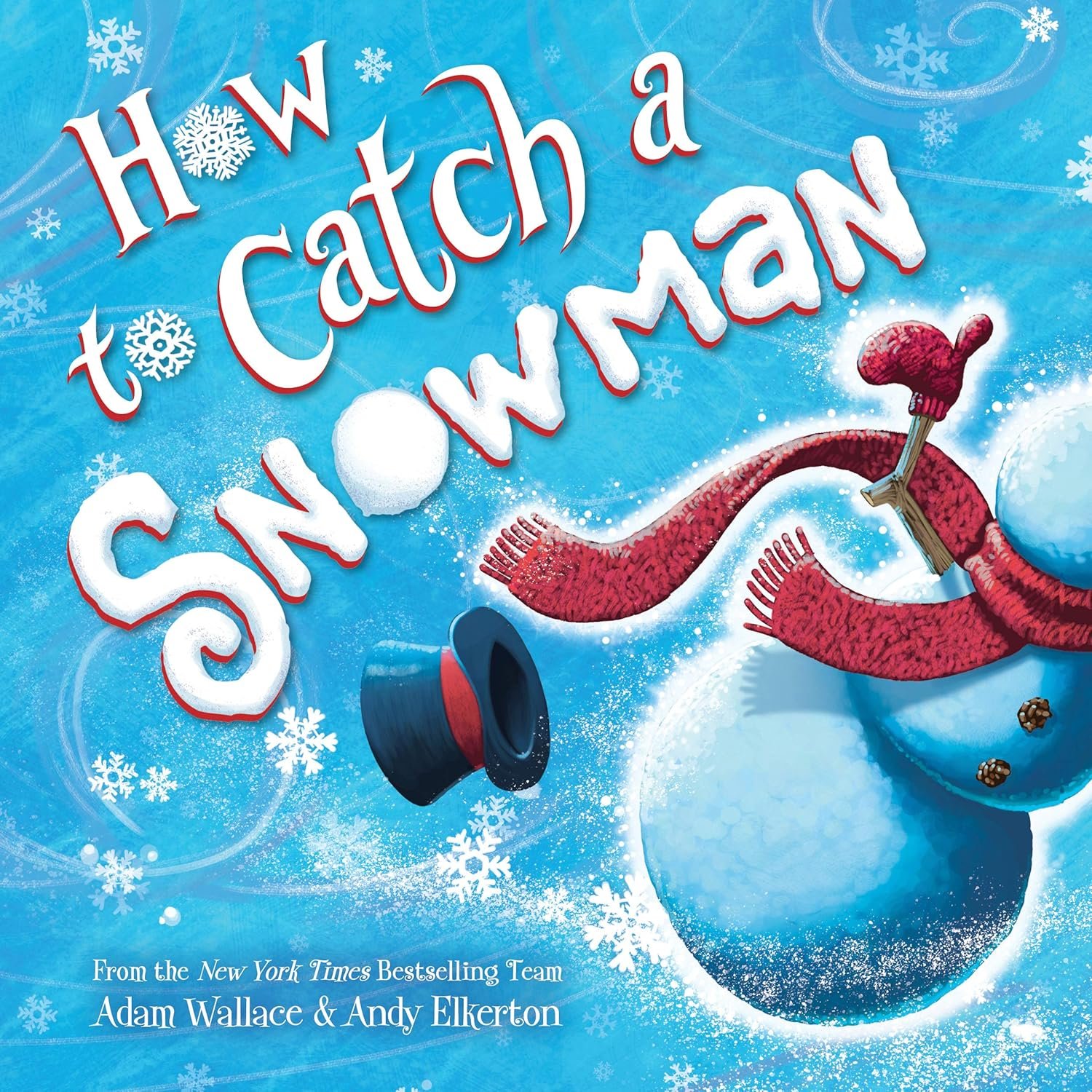Yrene panted, her legs sprawled before her on the rug, her back resting against the couch on which Lord Chaol now gasped for breath as well.
Her mouth was dry as sand, her limbs trembling so violently that she could barely keep her hands limp in her lap.
A spitting sound and a little thump told her he’d removed the bit.
He’d roared around it. His bellowing had been almost as bad as the magic itself.
It was a void. It was a new, dark hell.
Her magic had been a pulsing star that flared against the wall that the darkness had crafted between the top of his spine and the rest of it. She knew—knew without testing—that if she bypassed it, jumped right to the base of his spine … it would find her there, too.
But she had pushed. Pushed and pushed, until she was sobbing for breath.
Still, that wall did not move.
It only seemed to laugh, quietly and sibilantly, the sound laced with ancient ice and malice.
She’d hurled her magic against the wall, letting its swarm of burning white lights attack in wave after wave, but—nothing.
And only at the end, when her magic could find no crack, no crevice to slide into … Only when she made to pull back did that dark wall seem to transform.
To morph into something … Other.
Yrene’s magic had turned brittle before it. Any spark of defiance in the wake of that healer’s death had cooled. And she could not see, did not dare to look at what she felt gathering there, what filled the dark with voices, as if they were echoing down a long hall.
But it had loomed, and she had slid a glance over her shoulder.
The dark wall was alive. Swimming with images, one after another. As if she were looking through someone’s eyes. She knew on instinct they did not belong to Lord Chaol.
A fortress of dark stone jutted up amid ash-colored, barren mountains, its towers sharp as lances, its edges and parapets hard and slicing. Beyond it, coating the vales and plains amid the mountains, an army rippled away into the distance, more campfires than she could count.
And she knew the name for this place, the assembled host. Heard the name thunder through her mind as if it were the beat of a hammer on anvil.
Morath.
She’d pulled out. Had yanked herself back to the light and heavy heat.
Morath—whether it was some true memory, left by whatever power had struck him; whether it was something the darkness conjured from her own darkest terrors …
Not real. At least not in this room, with its streaming sunlight and chattering fountain in the garden beyond. But if it was indeed a true portrayal of the armies that Lord Chaol had mentioned yesterday …
That was what she would face. The victims of that host, possibly even the soldiers within it, should things go very wrong.
That was what awaited her back home.
Not now—she would not think about this now, with him here. Fretting about it, reminding him of what he must face, what might be sweeping down upon his friends as they sat here … Not helpful. To either of them.
So Yrene sat there on the rug, forcing her trembling to abate with each deep breath she inhaled through her nose and out her mouth, letting her magic settle and refill within her as she calmed her mind. Letting Lord Chaol pant on the couch behind her, neither of them saying a word.
No, this would not be a usual healing.
But perhaps delaying her return, remaining here to heal him for however long it took … There might be others like him on those battlefields—suffering from similar injuries. Learning to face this now, however harrowing … Yes, this delay might turn fruitful. If she could stomach, if she could endure, that darkness again. Find some way to shatter it.
Go where you fear to tread.
Indeed.
Her eyes drifted closed. At some point, the servant girl had come back with the ingredients Yrene had invented. Had taken one look at them and vanished.
It had been hours ago. Days ago.
Hunger was a tight knot in her belly—a strangely mortal feeling compared to the hours spent attacking that blackness, only half aware of the hand she’d placed on his back, of the screaming that came from him every time her magic shoved against that wall.
He had not once asked her to stop. Had not begged for reprieve.
Shaking fingers brushed her shoulder. “Are … you …” Each of his words was a burnt rasp. She’d have to get him peppermint tea with honey. She should call to the servant—if she could remember to speak. Muster the voice herself. “… all right?”
Yrene cracked her eyelids open as his hand settled on her shoulder. Not from any affection or concern, but because she had a feeling that the exhaustion lay so heavily upon him that he couldn’t move it again.
And she was drained enough that she couldn’t muster the strength to brush off that touch, as she’d done earlier. “I should ask you if you’re all right,” she managed to say, voice raw. “Anything?”
“No.” The sheer lack of emotion behind the word told her enough of his thoughts, his disappointment. He paused for a few heartbeats before he repeated, “No.”
She closed her eyes again. This could take weeks. Months. Especially if she did not find some way to shove back that wall of darkness.
She tried and failed to move her legs. “I should get you—” “Rest.”
The hand tightened on her shoulder. “Rest,” he said again.
“You’re done for the day,” she said. “No additional exercise—” “I mean—you. Rest.” Each word was labored.
Yrene dragged her stare toward the large clock in the corner. Blinked once. Twice.
Five.
They had been here for five hours—
He had endured it all that time. Five hours of this agony—
The thought alone had her drawing up her legs. Groaning as she braced a hand on the low-lying table and rallied her strength, pushing up, up, until she was standing. Weaving on her feet, but—standing.
His arms slid beneath him, the muscles of his bare back rippling as he tried to push himself up. “Don’t,” she said.
He did so anyway. The considerable muscles in his arms and chest did not fail him as he shoved upward, until he was sitting. Staring at her, glassy-eyed.
Yrene rasped, “You need—tea.” “Kadja.”
The name was little more than a push of breath. The servant immediately appeared. Too quickly.
Yrene studied her closely as the girl slipped in. She’d been listening.
Waiting.
Yrene did not bother to smile as she said, “Peppermint tea. Lots of honey.”
Chaol added, “Two of them.”
Yrene gave him a look, but sank onto the couch beside him. The cushions were slightly damp—with his sweat, she realized as she saw it gleaming on the contours of his bronzed chest.
She shut her eyes—just for a moment.
She didn’t realize it was far longer than that until Kadja was setting two delicate teacups before them, a small iron kettle steaming in the center of the table. The woman poured generous amounts of honey into both, and Yrene’s mouth was too dry, tongue too heavy, to bother telling her to stop or she’d make them ill from the sweetness.
The servant stirred both in silence, then handed the first cup to Chaol. He merely passed it to Yrene.
She was too tired to object as she wrapped her hands around it, trying to rally the strength to raise it to her lips.
He seemed to sense it.
He told Kadja to leave his cup on the table. Told her to go.
Yrene watched as through a distant window while Chaol took her cup and lifted it to her lips.
She debated shoving his hand out of her face.
Yes, she’d work with him; no, he was not the monster she’d initially suspected he’d be, not in the way she’d seen men be; but letting him this close, letting him tend to her like this …
“You can either drink it,” he said, his voice a low growl, “or we can sit like this for the next few hours.”
She slid her eyes to him. Found his stare to be level—clear, despite the exhaustion.
She said nothing.
“So, that’s the line,” Chaol murmured, more to himself than her. “You can stomach helping me, but I can’t return the favor. Or can’t do anything that steps beyond your idea of what—who I am.”
He was more astute than most people likely gave him credit for.
She had a feeling the hardness in his rich brown eyes was mirrored in her own.
“Drink.” Pure command laced his voice—a man used to being obeyed, to giving orders. “Resent me all you want, but drink the damn thing.”
And it was the faint kernel of worry in his eyes …
A man used to being obeyed, yes, but a man also inclined to care for others. Look after them. Driven to do it by a compulsion he couldn’t leash, couldn’t train out of him. Couldn’t have broken out of him.
Yrene parted her lips, a silent yielding.
Gently, he set the porcelain teacup against her mouth and tipped it for her.
She sipped once. He murmured in encouragement. She did so again. So tired. She had never been so tired in her life—
Chaol pushed the cup against her mouth a third time, and she drank a full gulp.
Enough. He needed it more than she did—
He sensed she was likely to bark at him, withdrew the cup from her mouth, and merely sipped it. One gulp. Two.
He drained it and grabbed the other one, offering her the first sips again before he took the dregs.
Insufferable man.
Yrene must have said as much, because a half smile kicked up on one side of his face. “You’re not the first to call me that,” he said, his voice smoother. Less hoarse.
“I won’t be the last, I’m sure,” she muttered.
Chaol simply gave her that half smile again and stretched to refill both cups. He added the honey himself—less than Kadja had. The right amount. He stirred them, his hands steady.
“I can do it,” Yrene tried to say. “So can I,” was all he said.
She managed to hold the cup this time. He made sure she was well onto drinking hers before he lifted his own to his lips.
“I should go.” The thought of getting out of the palace, let alone the trek to the Torre, then the walk up the stairs to her rooms …
“Rest. Eat—you must be starving.”
She eyed him. “You’re not?” He’d exercised heavily before she’d arrived; he had to be famished from that alone.
“I am. But I don’t think I can wait for dinner.” He added, “You could join me.”
It was one thing to heal him, work with him, let him serve her tea. But to dine with him, the man who had served that butcher, the man who had worked for him while that dark army was amassed down in Morath
… There it was. That smoke in her nose, the crackle of flame and screaming.
Yrene leaned forward to set her cup on the table. Then stood. Every movement was stiff, sore. “I need to return to the Torre,” she said, knees wobbling. “The vigil is at sundown.” Still a good hour from now, thankfully.
He noted her swaying and reached for her, but she stepped out of his range. “I’ll leave the supplies.” Because the thought of lugging that
heavy bag back …
“Let me arrange a carriage for you.”
“I can ask at the front gate,” she said. If someone was hunting her, she’d opt for the safety of a carriage.
She had to grip the furniture as she passed to keep upright. The distance to the door seemed eternal.
“Yrene.”
She could barely stand at the door, but she paused to look back.
“The lesson tomorrow.” The focus had already returned to those brown eyes. “Where do you want me to meet you?”
She debated calling it off. Wondered what she’d been thinking, asking him of all people to come.
But … five hours. Five hours of agony, and he had not broken.
Perhaps it was for that alone that she had declined dinner. If he had not broken, then she would not break—not in seeing him as anything but what he was. What he’d served.
“I’ll meet you in the main courtyard at sunrise.”
Mustering the strength to walk was an effort, but she did it. Put one foot in front of the other.
Left him alone in that room, still staring after her.
Five hours of agony, and she’d known it had not all been physical.
She had sensed, shoving against that wall, that the darkness had also showed him things on the other side of it.
Glimmers had sometimes shivered past her. Nothing she could make out, but they felt … they had felt like memories. Nightmares. Perhaps both.
Yet he had not asked her to stop.
And part of Yrene wondered, as she trudged through the palace, if Lord Chaol had not asked her to stop not just because he’d learned how to manage pain, but also because he somehow felt he deserved it.
Everything hurt.
Chaol did not let himself think about what he had seen. What had flashed through his mind as that pain had wracked him, burned and flayed and shattered him. What—and who he’d seen. The body on the bed. The collar on a throat. The head that had rolled.
He could not escape them. Not while Yrene had worked.
So the pain had ripped through him, so he had seen it, over and over. So he had roared and screamed and bellowed.
She’d stopped only when she’d slid to the floor. He’d been left hollow. Void.
She still had not wanted to spend more than a moment necessary with him.
He didn’t blame her.
Not that it mattered. Though he reminded himself that she’d asked him to help tomorrow.
In whatever way he could.
Chaol ate his meal where Yrene had left him, still in his undershorts. Kadja didn’t seem to notice or care, and he was too aching and tired to bother with modesty.
Aelin would likely have laughed to see him now. The man who had stumbled out of her room after she’d declared that her cycle had arrived. Now sitting in this fine room, mostly naked and not giving a shit about it.
Nesryn returned before sundown, her face flushed and hair windblown. One look at her tentative smile told him enough. At least she’d been somewhat successful with Sartaq. Perhaps she’d manage to do what it seemed he himself was failing to: raising a host to bring back home.
He’d meant to speak to the khagan today—about the threat last night’s attack had posed. Meant to, and yet it was now late enough to prevent arranging such a meeting.
He barely heard Nesryn as she whispered about Sartaq’s possible sympathy. Her ride on his magnificent ruk. Exhaustion weighed on him so heavily he could hardly keep his eyes open, even while he pictured those ruks squaring off against Ironteeth witches and wyverns, even while he debated who might survive such battles.
But he managed to give the order that curdled on his tongue: Go hunting, Nesryn.
If one of Erawan’s Valg minions had indeed come to Antica, time was not on their side. Every step, every request might be reported back to Erawan. And if they were pursuing Yrene, either for reading up on the Valg or for healing the Hand of the King of Adarlan … He didn’t trust anyone here enough to ask them to do this. Anyone other than Nesryn.
Nesryn had nodded at his request. Had understood why he’d nearly spat it out. To let her go into danger, to hunt that sort of danger …
But she’d done it before in Rifthold. She reminded him of that— gently. Sleep beckoned, turning his body foreign and heavy, but he managed to make his final request: Be careful.
Chaol didn’t resist when she helped him into the chair, then wheeled him into his room. He tried and failed to lift himself into bed, and was only vaguely aware of her and Kadja hauling him onto it like a slab of meat.
Yrene—she never did such things. Never wheeled him when he could do so himself. Constantly told him to move himself instead.
He wondered why. Was too damn tired to wonder why.
Nesryn said she would make his apologies at dinner, and went to change. He wondered if the servants heard the whine of the whetstone against her blades from her bedroom door.
He was asleep before she left, the clock in the sitting room distantly chiming seven.
No one paid Nesryn much heed at dinner that night. And no one paid her any heed later, when she donned her fighting knives, sword, and bow and quiver, and slipped into the city streets.
Not even the khagan’s wife.
As Nesryn stalked by a large stone garden on her way out of the palace, a glimmer of white caught her eye—and sent her ducking behind one of the pillars flanking the courtyard.
Within a heartbeat, she removed her hand from the long knife at her side.
Clad in white silk, her long curtain of dark hair unbound, the Grand Empress strolled, silent and grave as a wraith, down a walkway wending through the rock formations of the garden. Only moonlight filled the space—moonlight and shadow, as the empress strode alone and unnoticed, her simple gown flowing behind her as if on a phantom wind.
White for grief—for death.
The Grand Empress’s face was unadorned, her coloring far paler than that of her children. No joy limned her features; no life. No interest in either.
Nesryn lingered in the shadows of the pillar, watching the woman drift farther away, as if she were wandering the paths of some dreamscape. Or perhaps some empty, barren hell.
Nesryn wondered if it was at all similar to the ones she herself had walked during those initial months after her mother’s passing. Wondered if the days also bled together for the Grand Empress, if food was ash on her tongue and sleep was both craved and elusive.
Only when the khagan’s wife strode behind a large boulder, vanishing from sight, did Nesryn continue on, her steps a little heavier.
Antica under the full moon was a wash of blues and silvers, interrupted by the golden glow of lanterns hanging from public dining rooms and the carts of vendors selling kahve and treats. A few performers plucked out melodies on lutes and drums, a few gifted enough to make Nesryn wish she could pause, but stealth and speed were her allies tonight.
She stalked through the shadows, sorting through the sounds of the city.
Various temples were interspersed amongst the main thoroughfares: some crafted of marble pillars, some beneath peaked wooden roofs and painted columns, some mere courtyards filled with pools or rock gardens or sleeping animals. Thirty-six gods watched over this city—and there were thrice as many temples to them scattered throughout.
And with each one Nesryn passed, she wondered if those gods were peering out from the pillars or behind the carved rocks; if they watched from the eaves of that sloped roof, or from behind the spotted cat’s eyes where it lay half awake on the temple steps.
She beseeched all of them to make her feet swift and silent, to guide her where she needed to go while she prowled the streets.
If a Valg agent had come to this continent—or worse, a possible Valg prince … Nesryn scanned the rooftops and the gargantuan pillar of the Torre. It gleamed bone white in the moonlight, a beacon watching over this city, the healers within.
Chaol and Yrene had made no progress today, but—it was fine. Nesryn reminded herself, again and again, that it was fine. These things took a while, even if Yrene … It was clear she had some personal reservations regarding Chaol’s heritage. His former role in the empire.
Nesryn paused near an alley entrance while a band of young revelers staggered past, singing bawdy songs that would surely make her aunt scold them. And later hum along herself.
As she monitored the alley, the bordering, flat rooftops, Nesryn’s attention snagged on a rough carving in the earthen brick wall. An owl at rest, its wings tucked in, those unearthly large eyes wide and eternally unblinking. Perhaps no more than vandalism, yet she brushed a gloved hand over it, tracing the lines etched into the building’s side.
Antica’s owls. They were everywhere in this city, tribute to the goddess worshipped perhaps more than any other of the thirty-six. No chief god ruled the southern continent, yet Silba … Nesryn again studied the mighty tower, shining brighter than the palace on the opposite end of the city. Silba reigned unchallenged here. For anyone to break into that Torre, to kill one of the healers, they had to be desperate. Or utterly insane.
Or a Valg demon, with no fear of the gods—only of their master’s wrath if they should fail.
But if she were a Valg in this city, where to hide? Where to lurk?
Canals ran beneath some of the homes, but it was not like the vast sewer network of Rifthold. Yet perhaps if she studied the Torre’s walls
…
Nesryn aimed for the gleaming tower, the Torre looming with each nearing step. She paused in the shadows beside one of the homes across the street from the solid wall that enclosed the Torre’s entire compound.
Torches flickered along brackets in the pale wall, guards stationed every few feet. And atop it. Royal guards, judging from their colors, and Torre guards in their cornflower blue and yellow—so many that none would get by without notice. Nesryn studied the iron gates, now sealed for the night.
“Were they open last night, is the answer no guard wants to yield.”
Nesryn whirled, her knife angled low and up.
Prince Sartaq leaned against the building wall a few feet behind her, his gaze on the looming Torre. Twin swords peeked above his broad shoulders, and long knives hung from his belt. He’d changed from the finery of dinner back into his flying leathers—again reinforced with steel at the shoulders, silver gauntlets at his wrists, and a black scarf at his neck. No, not scarf—but a cloth to pull over his mouth and nose when the heavy hood of his cloak was on. To remain anonymous, unmarked.
She sheathed her knife. “Were you following me?”
The prince flicked his dark, calm eyes to her. “You didn’t exactly try to be inconspicuous when you left through the front gate, armed to the teeth.”
Nesryn turned toward the Torre walls. “I have no reason to hide what I’m doing.”
“You think whoever attacked the healers is just going to be strolling around?” His boots were barely a scrape against the ancient stones as he approached her side.
“I thought to investigate how they might have gotten in. Get a better sense of the layout and where they’d likely find appealing to hide.”
A pause. “You sound as if you know your prey intimately.” And didn’t think to mention this to me during our ride this morning, was the unspoken rest.
Nesryn glanced sidelong at Sartaq. “I wish I could say otherwise, but I do. If the attack was made by whom we suspect … I spent much of this spring and summer hunting their kind in Rifthold.”
Sartaq watched the wall for a long minute. He said quietly, “How bad was it?”
Nesryn swallowed as the images flickered: the bodies and the sewers and the glass castle exploding, a wall of death flying for her—
“Captain Faliq.”
A gentle prod. A softer tone than she’d expect from a warrior-prince. “What did your spies tell you?”
Sartaq’s jaw tightened, shadows crossing his face before he said, “They reported that Rifthold was full of terrors. People who were not people. Beasts from Vanth’s darkest dreams.”
Vanth—Goddess of the Dead. Her presence in this city predated even Silba’s healers, her worshippers a secretive sect that even the khagan and his predecessors feared and respected, despite her rituals being wholly different from the Eternal Sky to which the khagan and the Darghan believed they returned. Nesryn had walked swiftly past Vanth’s dark- stoned temple earlier, the entrance marked only by a set of onyx steps descending into a subterranean chamber lit with bone-white candles.
“I can see that none of this sounds outlandish to you,” said Sartaq. “A year ago, it might have.”
Sartaq’s gaze swept over her weapons. “So you truly faced such horrors, then.”
“Yes,” Nesryn admitted. “For whatever good it did, considering the city is now held by them.” The words came out as bitterly as they felt.
Sartaq considered. “Most would have fled, rather than face them at all.”
She didn’t feel like confirming or denying such a statement, no doubt meant to console her. A kind effort from a man who did not need to do such things. She found herself saying, “I—I saw your mother earlier. Walking alone through a garden.”
Sartaq’s eyes shuttered. “Oh?” A careful question.
Nesryn wondered if she perhaps should have held her tongue, but she continued, “I only mention it in case … in case it is something you might need, might want to know.”
“Was there a guard? A handmaiden with her?”
“None that I saw.”
That was indeed worry tightening his face as he leaned against the wall of the building. “Thank you for the report.”
It was not her place to ask about it—not for anyone, and certainly not for the most powerful family in the world. But Nesryn said quietly, “My mother died when I was thirteen.” She gazed up at the near-glowing Torre. “The old king … you know what he did to those with magic. To healers gifted with it. So there was no one who could save my mother from the wasting sickness that crept up on her. The healer we managed to find admitted to us that it was likely from a growth inside my mother’s breast. That she might have been able to cure her before magic vanished. Before it was forbidden.”
She had never told anyone outside of her family this story. Wasn’t sure why she was really telling him now, but she went on, “My father wanted to get her on a boat to sail here. Was desperate to. But war had broken out up and down our lands. Ships were conscripted into Adarlan’s service, and she was too sick to risk a land journey all the way down to Eyllwe to try to cross there. My father combed through every map, every trade route. By the time he found a merchant who would sail with them
—just the two of them—to Antica … My mother was so sick she could not be moved. She would not have made it here, even if they’d gotten on the boat.”
Sartaq watched her, face unreadable, while she spoke.
Nesryn slid her hands into her pockets. “So she stayed. And we were all there when she … when it was over.” That old grief wrapped around her, burning her eyes. “It took me a few years to feel right again,” she said after a moment. “Two years before I started noticing things like the sun on my face, or the taste of food—started enjoying them again. My father … he held us together. My sister and I. If he mourned, he did not let us see it. He filled our house with as much joy as he could.”
She fell silent, unsure how to explain what she’d meant by starting down this road.
Sartaq said at last, “Where are they now? After the attack on Rifthold?”
“I don’t know,” she whispered, blowing out a breath. “They got out, but … I don’t know where they fled, or if they will be able to make it here, with so many horrors filling the world.”
Sartaq fell quiet for a long minute, and Nesryn spent every second of it wishing she’d just kept her mouth shut. Then the prince said, “I will send word—discreetly.” He pushed off the wall. “For my spies to keep an eye out for the Faliq family, and to aid them, should they pass their way, in any form they can to safer harbors.”
Her chest tightened to the point of pain, but she managed to say, “Thank you.” It was a generous offer. More than generous.
Sartaq added, “I am sorry—for your loss. As long ago as it was. I … As a warrior, I grew up walking hand-in-hand with Death. And yet this one … It has been harder to endure than others. And my mother’s grief perhaps even harder to face than my own.” He shook his head, the moonlight dancing on his black hair, and said with forced lightness, “Why do you think I was so eager to run out after you into the night?”
Nesryn, despite herself, offered him a slight smile in return.
Sartaq lifted a brow. “Though it would help to know what, exactly, I’m supposed to be looking for.”
Nesryn debated what to tell him—debated his very presence here.
He gave a low, soft laugh when her hesitation went on a moment too long. “You think I’m the one who attacked that healer? After I was the one who told you about it this morning?”
Nesryn bowed her head. “I mean no disrespect.” Even if she’d seen another prince enslaved this spring—had fired an arrow at a queen to
keep him alive. “Your spies were correct. Rifthold was … I would not wish to see Antica suffer through anything similar.”
“And you’re convinced the attack at the Torre was just the start?” “I’m out here, aren’t I?”
Silence.
Nesryn added, “If anyone, familiar or foreign, offers you a black ring or collars, if you see anyone with something like it … Do not hesitate. Not for a heartbeat. Strike fast, and true. Beheading is the only thing that keeps them down. The person within them is gone. Don’t try to save them—or it will be you who winds up enslaved as well.”
Sartaq’s attention drifted to the sword at her side, the bow and quiver strapped to her back. He said quietly, “Tell me everything that you know.”
“I can’t.”
The refusal alone could end her life, but Sartaq nodded thoughtfully. “Tell me what you can, then.”
So she did. Standing in the shadows beyond the Torre walls, she explained everything she could, save for the keys and gates, and Dorian’s enslavement, as well as that of the former king.
When she’d finished, Sartaq’s face had not changed, though he rubbed at his jaw. “When did you plan to tell my father this?”
“As soon as he’d grant us a private meeting.”
Sartaq swore, low and creative. “With my sister’s death … It’s been harder for him than he’ll admit to return to our usual rhythms. He will not take my counsel. Or anyone else’s.”
It was the worry in the prince’s tone—and sorrow—that made Nesryn say, “I’m sorry.”
Sartaq shook his head. “I must think on what you told me. There are places within this continent, near my people’s homeland …” He rubbed at his neck. “When I was a boy, they told stories at the aeries of similar
horrors.” He said, more to himself than her, “Perhaps it is time I paid my hearth-mother a visit. To hear her stories again. And how that ancient threat was dealt with, long ago. Especially if it is now stirring once more.”
A record of the Valg … here? Her family had never told her any such tales, but then her own people had hailed from distant reaches of the continent. If the ruk riders had somehow either known of the Valg or even faced them …
Footsteps scuffed on the street beyond, and they pressed into the walls of the alley, hands on their sword hilts. But it was only a drunk stumbling home for the night, saluting the Torre guards along the wall as he passed, earning a few laughing grins in return.
“Are there canals beneath here—nearby sewers that might connect to the Torre?” Her question was little more than a push of air.
“I don’t know,” Sartaq admitted with equal quiet. He smiled grimly as he pointed toward an ancient grate in the sloped stones of the alley. “But it would be my honor to accompany you in discovering one.”





